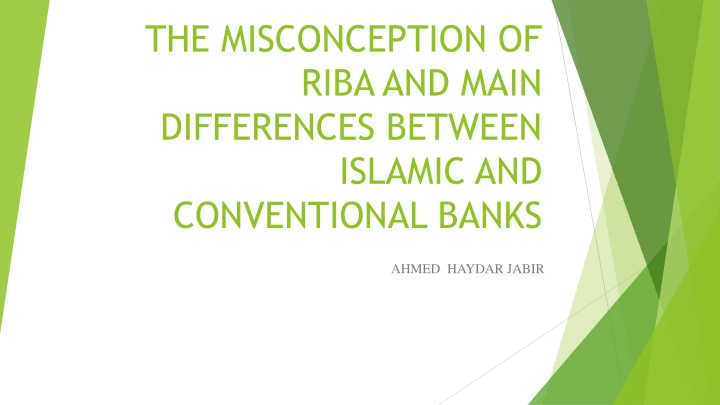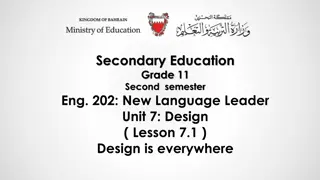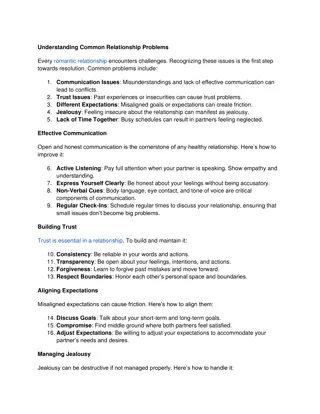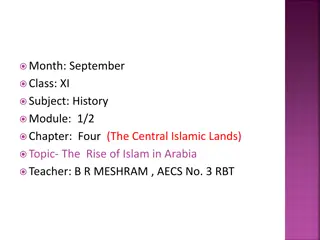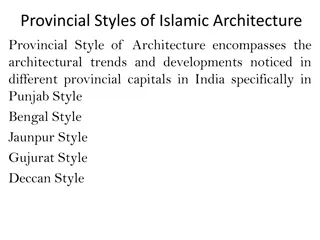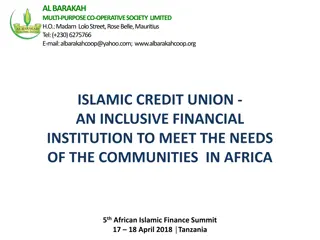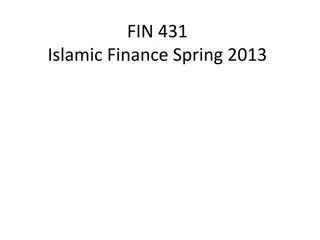The Misconception of Riba and Main Differences Between Islamic and Conventional Banks
Riba (interest, usury) is a significant economic issue across religions. Islam, Christianity, and Judaism strongly condemn Riba. Islamic banks operate based on profit-sharing and real asset backing, unlike conventional banks that charge interest. Explore the types of Riba and the distinctions between Islamic and conventional banking systems.
Download Presentation

Please find below an Image/Link to download the presentation.
The content on the website is provided AS IS for your information and personal use only. It may not be sold, licensed, or shared on other websites without obtaining consent from the author.If you encounter any issues during the download, it is possible that the publisher has removed the file from their server.
You are allowed to download the files provided on this website for personal or commercial use, subject to the condition that they are used lawfully. All files are the property of their respective owners.
The content on the website is provided AS IS for your information and personal use only. It may not be sold, licensed, or shared on other websites without obtaining consent from the author.
E N D
Presentation Transcript
THE MISCONCEPTION OF RIBA AND MAIN DIFFERENCES BETWEEN ISLAMIC AND CONVENTIONAL BANKS AHMED HAYDAR JABIR
Riba (interest, usury) is primarily an economic issue in view of the fact that all religions and mythologies have prohibited,restricted, discouraged, disliked, or degraded Riba in one way or the other. All three major revealed religions i.e., Islam, Christianity, and Judaism have strongly condemned and prohibited Riba in its original versions. Riba led the mankind into the economic anarchy of the present era. Riba was made legal by Judo-Christian amendments in the divine law - its destructive fallouts earthed at large. Hence in Islam, there are two of types, one is mentioned in the Qur an riba-al-nasiah and the other explained by the prophet Muhammad (s.a.w) riba-al-fadl or riba-al-buyu and interpreted these as "riba in debt" and "riba in trade respectively a) Riba al Nasiah- here the increase or growth is due to postponement. It can be specified in the beginning of transaction or on maturity of debt. If the debtor is not able to pay back the debt on maturity and the creditor gives him some more time in return for an additional amount it is termed Riba al Nasiah
The three types of Riba al Nasiah in Maududis view are: i. ii. Article is sold on deferred payment basis. Time of payment is fixed. Inability to pay on the stipulated time attracts extra amount and the payment date is extended. ii. A sum is lent and it is determined at the beginning that the borrower would return an extra amount in addition to the amount loaned within a stipulated time. iii. A sum is lent at a fixed rate of interest for a stipulated time period. If the borrower fails to pay the time as well as the rate of interest would increase. Five characteristics of Riba al Nasiah are: i. It is fixed. ii. It is guaranteed. iii. It increases with the increase of time. iv. It secures the lender but exposes the borrower to great danger. v. It does not increase with Allah and invites his anger and wrat
b) Riba al Fadl- here the increase is independent of postponement or maturity of debt. It happens when two same things are exchanged unequally. For example a kilo of wheat being exchanged for 1.5 kilos of wheat The Holy Prophet (PBUH) felt that, given the commercial atmosphere at that time, certain barter transactions might lead the people to indulge in Riba. The Arabs used certain commodities like wheat, barley, dates etc., as a medium of exchange to purchase other things. The Holy Prophet (PBUH) treating these commodities as a medium of exchange like money, issued the following injunction: "Gold for gold, silver for silver, wheat for wheat, barley for barley, date for date, salt for salt, must be equal on both sides and hand to hand. Whoever pays more or demands more (on either side) indulges in Riba ."
Conventional Banking System Islamic Banking System Money is a product besides medium of exchange and store of value Real Asset is a product. Money is just a medium of exchange Time value is the basis for charging interest on capital Profit on exchange of goods & services is the basis for earning profit Interest is charged even in case, the organization suffers losses. Thus no concept of sharing loss Loss is shared when the organization suffers loss
While disbursing cash finance, running finance or working capital finance, no agreement for exchange of goods & services is made The execution of agreements for the exchange of goods & services is must, while disbursing funds under Murabaha, Salam & Istisna contracts Due to non existence of goods & services behind the money while disbursing funds, the expansion of money takes place, which creates inflation Due to existence of goods & services no expansion of money takes place and thus no inflation is created Due to inflation the entrepreneur increases prices of his goods & services, due to incorporating inflationary effect into cost of product Due to control over inflation, no extra price is charged by the entrepreneur Bridge financing and long term loans lending is not made on the basis of existence of capital goods Musharakah & Diminishing Musharakah agreements are made after making sure the existence of capital good before disbursing funds for a capital project
Real growth of wealth does not take place, as the money remains in few hands Real growth in the wealth of the people of the society takes place, due to multiplier effect and real wealth goes into the ownership of lot of hands Due to decrease in the real GDP, the net exports amount becomes negative. This invites further foreign debts and the local-currency becomes weaker Due to increase in the real GDP, the net exports amount becomes positive, this reduces foreign debts burden and local- currency becomes stronger CONCLUSION There is paramount importance for the expert in Islamic finance to raise awareness of Riba as well as Islamic banking not only to the lay people but also to the Muslim preachers and non Muslims, Consequently Islamic banks are for all is doesn t matter which religion you belong because is a matter of muamlalat dealing and not ibadat worshipping like prayers, fasting etc.
